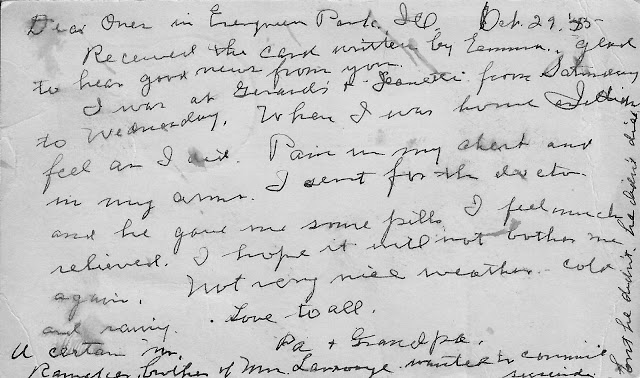Almost inevitably, they picked it out of a Sears Roebuck catalog. The J. C. Higgins brand name belonged to Sears Roebuck, and after the war they put it on their whole line of bikes. See that one at the top of the page, that's the one Mom and Dad bought. That they paid that kind of money for a bike for their little boy seems a stretch, but that Christmas obviously they did.
I don't remember the light out front, but I do remember the whitewalls, the fancy, mid-ship tank--complete with push button horn--and the luggage rack, which never held luggage but often lugged buddies.
I don't remember thinking that bike was ultra fancy. It wasn't a Rollfast, built for speed, or a Schwinn, the Cadillac of bikes. It was just an ordinary J C Higgins from Sears, the Walmart of the era. Still, I can't help thinking that Gilson Brothers must have forked over a healthy Christmas bonus that year, maybe 1956 or 57.
It likely wasn't my first bike. It was a 26-inch, full-size, after all, and didn't come with training wheels. Lakeshore Christmases were almost inevitably white, so I'm sure I had to wait weeks before actually taking a spin. I had some kind of spoked transportation before that Christmas, but that J C Higgens I will never, ever forget because it created in my heart the greatest Christmas ever.
It started with the Christmas Eve Sunday School program, the only service of the year when kids moved the podium off the stage and took the place over. Everybody got "a line," a verse or two to say when appointed, and I remember being scared witless about forgetting. Don't remember if I ever did. I was a kid before anyone risked candles, so there was no lights-out "Silent Night" kind of thing, but the kid program on Christmas Eve was blessedly special, as well as a test of patience and faith you simply had to get through in order to get back home and open presents.
That bike and its fancy tank was the biggest Christmas present ever, and a real problem to hide. Wasn't about to fit under the tree in the living room, and there really was no place in the house where it could sit and wait for the ritual opening of presents. I don't know whose decision it was, but Mom and Dad did what they could to hide it behind that big red sofa against the west wall. Dad must have moved that thing out of the way to get the bike behind it, then realized the handlebars weren't about collapse. Maybe Mom had the grand idea of just throwing coats from the vestibule over it--add a couple of blankets over the back of the couch for a bundle, a cloud of stuff to cover the whole thing.
And it worked. That night, when I sat cross-legged beside the tree, I had absolutely no idea. There'd been nary a whisper about what little Jimmy was getting for Christmas. I had no suspicions and wasn't even hoping for a bike--it was December, after all, and nobody was going anywhere on bikes over those icy streets. Who was thinking of bicycles anyway?
Half-way through maybe, not before. I don't remember thinking somehow forgotten, so I'm sure that bike wasn't last; but at some appointed moment that Christmas Eve, Dad pointed to the hills of clothing and blankets over the back of the couch and directed me to peel 'em off. I was still in complete darkness.
But when I did, that Christmas moment became the gold standard. I was a boy, a child, a kid, and I had absolutely no idea it was coming. I was shocked, overwhelmed--that J C Higgins was about the most beautiful thing I'd ever seen or owned. I don't know that I could breath. Then Dad moved the couch again so I could slip that monster gift onto the living room rug where it took over the room.
There are fragments of maybe seventy Christmases in my memory bank, but none are as complete our bountiful as the year--mid '50s--Mom and Dad hid that brand new, white-walled J C Higgins behind the couch and blew me away with their love.
We have definitely scored some bigger gifts--inheritance checks that, decades later, silenced my wife and me. But no single memory will ever climb the heights that Christmas around the tree did, the moment Dad suggested I grab those silly coats from the back of the couch.
The story at the heart of Christmas is the blessed saga of a child in a manger, a newborn surrounded by gawking visitors, maybe even a lamb or two or three. It's a baby who is king, a king in a manger, but a child, a baby. Maybe that's why, a couple thousand years later, Christmas will always be a day for children.































